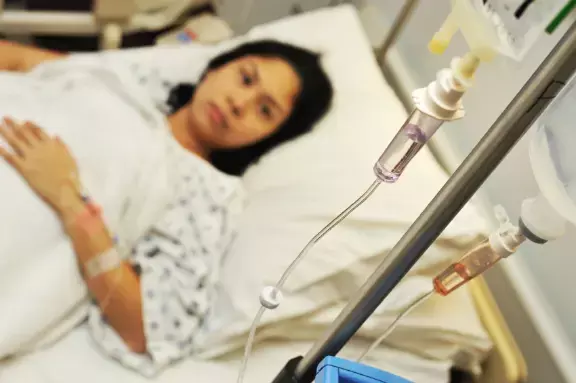- Home
- Medical news & Guidelines
- Anesthesiology
- Cardiology and CTVS
- Critical Care
- Dentistry
- Dermatology
- Diabetes and Endocrinology
- ENT
- Gastroenterology
- Medicine
- Nephrology
- Neurology
- Obstretics-Gynaecology
- Oncology
- Ophthalmology
- Orthopaedics
- Pediatrics-Neonatology
- Psychiatry
- Pulmonology
- Radiology
- Surgery
- Urology
- Laboratory Medicine
- Diet
- Nursing
- Paramedical
- Physiotherapy
- Health news
- Fact Check
- Bone Health Fact Check
- Brain Health Fact Check
- Cancer Related Fact Check
- Child Care Fact Check
- Dental and oral health fact check
- Diabetes and metabolic health fact check
- Diet and Nutrition Fact Check
- Eye and ENT Care Fact Check
- Fitness fact check
- Gut health fact check
- Heart health fact check
- Kidney health fact check
- Medical education fact check
- Men's health fact check
- Respiratory fact check
- Skin and hair care fact check
- Vaccine and Immunization fact check
- Women's health fact check
- AYUSH
- State News
- Andaman and Nicobar Islands
- Andhra Pradesh
- Arunachal Pradesh
- Assam
- Bihar
- Chandigarh
- Chattisgarh
- Dadra and Nagar Haveli
- Daman and Diu
- Delhi
- Goa
- Gujarat
- Haryana
- Himachal Pradesh
- Jammu & Kashmir
- Jharkhand
- Karnataka
- Kerala
- Ladakh
- Lakshadweep
- Madhya Pradesh
- Maharashtra
- Manipur
- Meghalaya
- Mizoram
- Nagaland
- Odisha
- Puducherry
- Punjab
- Rajasthan
- Sikkim
- Tamil Nadu
- Telangana
- Tripura
- Uttar Pradesh
- Uttrakhand
- West Bengal
- Medical Education
- Industry
Continuous insulin infusion most effective for blood sugar control after liver transplantation: Study

Brazil: Continuous insulin infusion versus bolus infusion is more effective for immediate postoperative blood glucose control in liver transplantation, reveals a recent study in Einstein (Sao Paulo).
The prospective, open, pragmatic clinical trial was performed by Luciana Vládia Carvalhêdo Fragoso and the team from Brazil to analyze the safety and effectiveness of two insulin therapy techniques (continuous and intermittent infusion) in the blood glucose control of people who have undergone liver transplantation, in the immediate postoperative period.
The trial included 42 participants, divided into two groups of 21 patients each, in the immediate postoperative period following liver transplantation. Participants in the experimental and control group respectively received continuous infusion and bolus insulin, starting at capillary blood glucose ≥150mg/dL.
The study led to the following findings:
· There were no statistically significant differences in the blood glucose reduction time to reach the target range between the Experimental Group and Control Group in the transplanted patients.
· No statistically significant differences regarding the presence of low blood glucose and in the initial blood glucose value were found.
· The study identified the final blood glucose value in the postoperative intensive care unit as lower and statistically significant in the continuous infusion pump group in relation to the Bolus Group.
· The variation of blood glucose reduction was higher and statistically significant in the continuous method group.
To conclude, insulin by continuous infusion administration yielded better results regarding the variables "blood glucose variation" and "final blood glucose value." This implies that it has been the most effective method for the administration of bolus insulin for blood glucose control in the immediate postoperative period following liver transplantation.
Reference:
Fragoso, Luciana Vládia Carvalhêdo et al. "Bolus versus continuous insulin infusion in immediate postoperative blood glucose control in liver transplantation: pragmatic clinical trial." Einstein (Sao Paulo, Brazil) vol. 20 eAO6959. 1 Jun. 2022, doi:10.31744/einstein_journal/2022AO6959
Dr Kamal Kant Kohli-MBBS, DTCD- a chest specialist with more than 30 years of practice and a flair for writing clinical articles, Dr Kamal Kant Kohli joined Medical Dialogues as a Chief Editor of Medical News. Besides writing articles, as an editor, he proofreads and verifies all the medical content published on Medical Dialogues including those coming from journals, studies,medical conferences,guidelines etc. Email: drkohli@medicaldialogues.in. Contact no. 011-43720751


